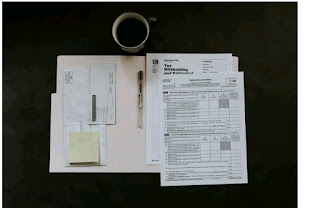Tips for Moving Your Business to a New Location
Moving your business to a new location can indeed be quite a challenge. Whether it’s a small, home-based business without employees or a large business with numerous employees, relocating means chaos, loss of productivity and disruption. When moving your office, you’re not just moving furniture, but a business as well.
Plan your budget
Before you start looking for a new location, you should decide whether leasing or buying would be a better option. This is among the trickiest decisions many entrepreneurs encounter. Here are a couple of tips that might help you make up your mind:
- Leasing is a much more suitable option if you have a young business with little extra capital. Also, consider leasing if your business grows fast with uncertain and unpredictable future space needs.
- If you run a more established business or one with specific space needs, consider buying. Moreover, purchasing helps your working capital grow, and you don’t have to worry about restrictions and rent increases.
Make sure your company is able and ready to pay for all moving expenses – a moving company, moving supplies and storage needs.
Find a new office location
A great location can be hard to find. If your business isn’t home-based, you will need to find a new office location. This is a task your HR department can help you with. You should make sure to accessibility for clients and suppliers, parking, shipping, public transportation and room to grow into consideration. Remember, the needs of your staff and clients should always be your top priority.
Moreover, don’t forget to consider local taxes and infrastructure. Taxes may vary between municipalities, so this is something you should discuss with your commercial real estate agent.
Inform clients and employees
Failing to communicate the whereabouts of your new business can cause many issues. Whether you run a restaurant, a retail store or an IT business, you depend on your customers. Moreover, you probably get many deliveries from your distributors and partners. You grasp the idea of how them not knowing where you are may be problematic. This applies both if you’re moving across the street or having your business transferred to another state. Since cross-country moves are usually more complex, people tend to underestimate the local ones and thus forget to inform the people their business operations depend on.
 |
| Informing everyone about the move timely is essential. |
So, avoid surprising your coworkers and employees and let them know about the relocation ahead of time. Give them plenty of notice so they can adjust accordingly. Social media and newsletters can be lifesavers in this situation. Inform them of the benefits of switching your business to a new location, such as extra space or a more convenient area.
Build up your inventory
We advise building up extra inventory. This is just in case – you should always have enough stock on hand. This way, you can prevent unexpected issues and provide uninterrupted supply for your production needs and clients. Also, make a short list of:
- Things you’re taking
- Things you’re leaving behind
Update your company’s website and order new business cards
Your company’s marketing material shouldn’t have the old address on it. Be sure to update these as soon as you move. Otherwise, you could both confuse your customers and clients and make your business look frivolous. Don’t forget to keep your online presence and data current and update your company’s website, Google My Business listings and e-mail signatures.
Notify the IRS
You will need to let the IRS know you’re relocating your business to a new address to ensure you receive all tax refunds or IRS correspondence. Use your new address when filing your tax return, and the IRS will automatically update its records. If you already filed your taxes but failed to include your new address, don’t worry - just fill out Form 8822.
 |
| A quicker way to inform the IRS to file your tax returns using your new address |
Prepare your office for the move
A wise man once said that moving is an excellent opportunity to declutter, so get rid of any old and unnecessary things. Empty the drawers and cabinets and pack the office supplies after acquiring all the necessary packing equipment. More importantly, collect all the vital paperwork and documents and keep them close to you. Prepare the furniture and equipment for packing, disassemble anything if necessary and protect your possessions from getting damaged. Finally, don’t forget to label the boxes. This will make the process of unpacking significantly more manageable.
Office-moving checklist
- Notify your employees about moving your business to a new location
- Inform your customers, clients, partners and affiliates
- Notify the IRS
- Let your current landlord know (if you have one)
- Get quotes from moving companies such as Heavenly Moving and Storage
- Decide on moving coverage
- Set a budget
- Gather a planning team
- Create a plan for moving
- Distribute responsibilities to team members
- Hire an interior designer
- Order special equipment
- Stack up your inventory
- Make a plan for setting up IT systems, phone and internet installations
- Do thorough research of business insurance options
- Collect all the moving supplies you’ll need
- Transfer utilities
- Update company address listings
- Back up important documents
- Review your moving day schedule
After the move – throw a party!
Celebrating your office move is probably the best way to reveal a new image. You can opt for a big party with your clients, a drink reception for your staff, or even an opening party. Creating a good first impression and building your staff morale is essential. You know what they say - work hard, play hard(er).
 |
| After a successful move, make sure to celebrate. |
You can do this!
It’s undeniable that moving your business to a new location carries certain risks, but it can be the best thing for your company. According to many relocation experts, the odds are in your favor. However, as with any other change, problems may arise from making some common mistakes. To avoid unpleasant surprises, remember three things: don’t rush the decision, don’t focus too narrowly on a few costs and never ignore quality-of-life factors and environmental concerns. When all the fuss is over, you’ll see that a fresh start with excited customers is indeed worth all the effort.
Images used:
https://unsplash.com/photos/lDlU1zbjGQA
https://unsplash.com/photos/4SNUcHPiC8c
https://unsplash.com/photos/8DEDp6S93Po
https://unsplash.com/photos/F0a4OeyoQX0























0 komentar:
Post a Comment